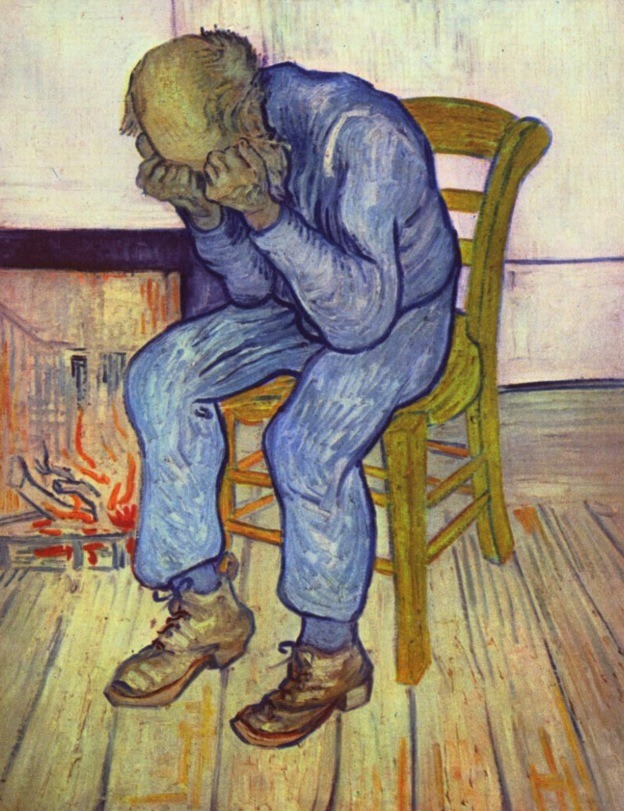Ruland combines dark humor with a thorough understanding of human frailty in this offbeat gothic gambling tale.
Forest of Fortune in Kirkus Reviews.
Ruland combines dark humor with a thorough understanding of human frailty in this offbeat gothic gambling tale.
Forest of Fortune in Kirkus Reviews.

For the last two plus years I’ve started my week by getting up at 3:40 in the morning, making coffee, and driving to L.A. During those long dark drives up the 805 to the 5, over to the 73 and then on to the 405, Brad Listi’s Other People was my co-pilot. No one feels like doing anything that early in the morning, but as I made my way to L.A. I would become inspired by the stories the writers on Other People shared. The heartache and loneliness of the struggle. The validation and joy of achievement. They all taught me something. Even the insufferable guests who never bothered to listen to the show and were baffled by Brad’s line of questioning were instructive. During those drives, I often thought about what it would be like to be on the show, what I would say, how I would craft my responses. Then, when my turn came to be on the show, it wasn’t anything like I thought it would be. It felt like having a conversation with an old acquaintance. Hats off to the host for doing a good thing extremely well and making it so easy to enjoy.

Next month I’ll be doing some traveling on the West Coast with readings in San Francisco, Anchorage, Seattle and Portland. My events page has (or will have) the most up-to-date information with links to book stores, readings and Facebook invites. If you live in or near or between these cities, I’d love to see you!

Many thanks to J Ryan Stradal who interviewed me for The Rumpus at a super secret Oaxacan restaurant in Hollywood to discuss Forest of Fortune, and Indian gaming. Using his Minnesota mind tricks, J Ryan got me to talk about the series of dispatches I wrote for McSweeney’s back when I worked at the casino. It was during the recession and I was terrified of many things but mostly of getting fired so I never really told anyone about them. I even used a pseudonym, the origin of which escapes me. An excerpt:
Rumpus: Are you implying, in a way, that Indian casinos are a social justice enterprise?
Ruland: Absolutely. In a way they are, except when they aren’t. Casinos have given many sovereign nations economic autonomy, which is the only thing that matters to institutions of power and control. In 21st century America, governance is a game you have to pay to play. Wealth from gaming revenue got many tribes a seat at the table, and they were able to use their capital to influence decisions that concerned their interests. Casinos have allowed many tribes to make substantial investments in their infrastructure that simply weren’t imaginable twenty years ago: schools, hospitals, daycare facilities, recreation centers, gymnasiums, museums. The list goes on and on.

Two new debuts, two very different views of procreation: The Shimmering Go-Between by Lee Klein and Crazy Horse’s Girlfriend by Erika T. Wurth.
The Shimmering Go-Between, the debut novel by Lee Klein, published by Atticus Books, takes its title from a quote by Vladimir Nabokov: “Between the wolf in the tall grass and the wolf in the tall tale, there is a shimmering go-between…” That’s a telling quote, for it alerts the reader to the possibility that we are on the threshold of something fantastic.
Read the rest of the review in the forty-fourth installment of The Floating Library.

I had the pleasure of speaking with Dave Drexler, host of Inside Art, which airs on Jazz 88.3 KSDS every Sunday. We spoke about Forest of Fortune, Vermin on the Mount and Indian gaming in San Diego County. Most people complain about the sound of their own voice, but I loved listening to this interview because of Dave’s voice. When I worked at an Indian casino, Dave would occasionally provide vocal work for the casino, from on-hold messages to the greetings players received when they inserted their reward cards into the machines. It was so unusual to speak with the man behind the microphone after all these years. My segment starts at around 15:20 and lasts a little over 10 minutes.

My esteemed colleague Grant Jarrett, author of Ways of Leaving and More Towels, tagged me to take part in the Writing Process Blog Tour, so here goes. Make sure you scroll down to see who I tag…
What are you working on?
I’m working on two new things: a dystopian, near-future novel about the collapse of the health care system and revising a book of short stories about cats and mind control.
How does your work differ from the work of others in the same area/genre?
This is tricky for me because I don’t think I have a genre, and the work I’ve been able to finish lately is the result of being okay with that. For instance, my novel Forest of Fortune is categorized as a mystery, but that doesn’t come close to covering all the bases. The novel cozies up to the supernatural and collides with crime, but it also deals with casino culture, advertising, addiction and loneliness. Because it’s set on an Indian casino I imagine some stores will shelve it in the Native American section next to a biography of Geronimo and others will shelve in the Gambling. I’m not a genre writer (NTTAWWT) but everything I write has one foot in one genre, and the other foot in another. Sometimes more than one. Sometimes many feet. So there’s your answer: I’m a centipede.
Why do you write what you do?
I think my mind has a counterfactual bend. Yeah, that’s interesting, but what if…. I’m fascinated by history. I’m intrigued by ordinary people in extraordinary situations. I can’t get enough of stories about things going wrong during periods of organized confusion and ordinary madness, like a psychotic break during spring break. How can you tell when someone is going crazy when everyone is “going crazy”? That’s what I did with Forest of Fortune: I put a bunch of people with compulsive behavior issues who are haunted by the past in a casino that may or may not be haunted.
How does your writing process work?
I’ve learned two things about my process over the last few years: 1) If it worked before, it probably won’t work again. That old saw about having to start from the ground up and reinvent the wheel is definitely true for me. If a method, approach, or location worked on one project, it probably won’t work on the next one. On January 1, I started using a daily word count – one page a day – for my book projects and that has worked wonders. At least for now. 2) Embrace change. I’m a creature of habit with a strong inclination toward laziness, yet few things are more stimulating than a change of scenery. The last two years have been marked by constant movement as I shuttled back and forth between Los Angeles and San Diego, but they’ve been very productive years. I’m moving back to San Diego next month but will keep moving, keep exploring, keep mixing things up.
Next up on the Writing Process Blog Tour:
Maggie Thach is an award-winning journalist whose byline has appeared in The Fresno Bee, The San Francisco Chronicle, The Reno Gazette Journal and other news outlets across the country. In a past life, she was a sports reporter at The Salt Lake Tribune, where she covered high school, college and professional sports. These days, she’s working on a memoir and figuring out what to do with an MFA in creative nonfiction.
Julia Evans is a writer in San Diego. Her work has appeared at Hobart, Black Candies, and So Say We All’s storytelling showcases. She is a PEN in the Community instructor. Follow: @juliadixonevans. I should probably update my blog with a bio one of these days.
Ice Buck Challenge: Sailor Style



In this review of Forest of Fortune for HTML Giant, Sean Carswell unpacks how advertising works in casino culture and what it means for the people stuck in its vortex:
We’re often seduced by advertising, untroubled by the knowledge that we’re being lied to, uncritical of the alternate reality it sells. We want the story regardless. In almost every case, it’s the story we purchase. The commodity is just the bi-product, something we’ll keep around until the story loses its luster.
A really sharp and savvy take that makes me seem much smarter than I am. To quote Pee Wee Herman, “I meant to do that.”